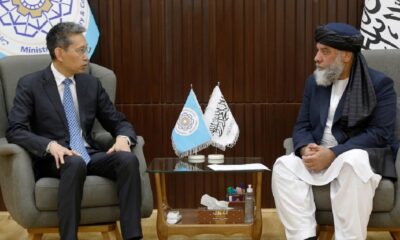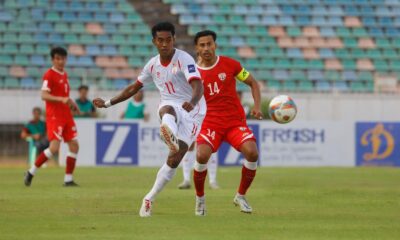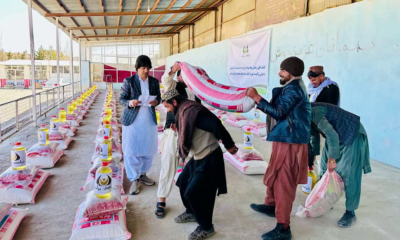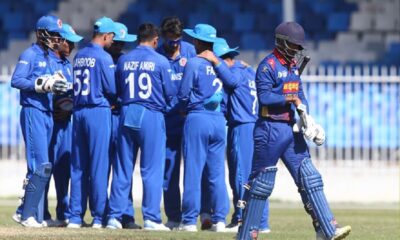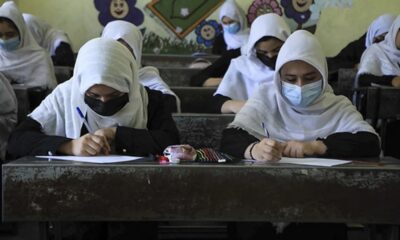Latest News
Key to war and peace lies with Pakistan: Karzai
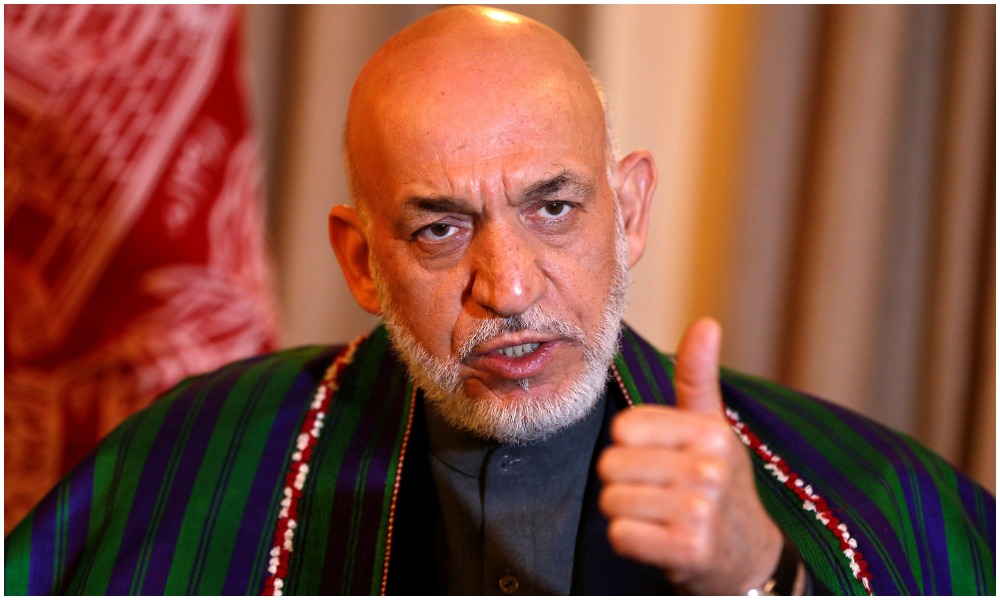
Former Afghan president Hamid Karzai said Afghans are being used against each other by external forces and that Pakistan wants to exert strategic influence in Afghanistan through the Taliban.
In an interview with Germany’s weekly news magazine Der Spiegel, Karzai said: “I realized early into my tenure as president that this war is not our conflict, and we Afghans are just being used against each other – the republic against the Taliban and the Taliban against us.
“Both the Afghan Republic and the Taliban are victims of these external forces. That is why we are suffering,” he said.
Giving background on the events of the past 20 years, Karzai said that after the September 11, 2001, terrorist attacks in the U.S., Washington took the historic opportunity to pursue its global ambitions in Afghanistan.
“Just look at our position on the map. Afghanistan is the most strategically important place in today’s global contest for supremacy. At the same time, Pakistan started using the Taliban to further its own agenda in Afghanistan.”
He noted that there are local and regional conflicts, but according to him what is of key importance is “geostrategic domination”.
Karzai said a key moment for him had been during a meeting with senior U.S. policymakers in Washington in 2013, including former president Jimmy Carter’s now-deceased national security adviser, Zbigniew Brzezinski.
“When I asked whether it was true that America was deliberately promoting radical Islamist forces in Afghanistan and the region, Brzezinski said, yes, they wanted to create as many conflict zones around the USSR as possible, a so-called ‘arc of crisis’, and that the Soviet invasion was a good opportunity to carry this out.
“I replied that Islamist extremism had been gravely strengthened as a result and had grown into the danger it is today. Brzezinski replied that from a historical perspective, the rise of a few Islamists was ‘irrelevant’ compared to the failure of communism,” he said.
Explaining what this contest of world powers has to do with the Taliban, Karzai said: “When things started to go wrong in Afghanistan – around 2005, 2006, when the extremist terrorist attacks started – we talked to the U.S. about the different causes of the violence. We knew that these attacks were being organized by intelligence in Pakistan and carried out by the Taliban.
“The U.S. confirmed this independently, telling us: Yes, the violence is coming from Pakistan, and yes, the Taliban’s sanctuaries are there. But instead of investigating the root cause of the violence and going after it, Washington started to fund Pakistan’s military,” he said.
Karzai said the U.S. was supporting both sides of the conflict at the same time.
“It was dropping bombs on Afghan villages in order to fight the Taliban, while at the same time, funding the very country accused of organizing Taliban terror campaigns.
“Former U.S. President Donald Trump once announced that America had paid $35 billion to Pakistan over these past 19 years. This contradictory policy cost thousands of Afghan lives – troops and civilians alike. Tell me, how was Afghanistan supposed to come to peace?,” he asked.
Asked how the U.S. responded to his take on this, Karzai said there has never been a satisfactory answer.
“Either the U.S. has really miscalculated strategically, or Pakistan, which is so closely linked to China and Great Britain, is simply more important than we are for achieving Washington’s global goals,” he said.
Karzai stated that Pakistan wants to exert strategic influence in Afghanistan through the Taliban adding that this traces back to fears related to the legacy of British colonial rule in the region.
He said however that Afghans want strong relations with Pakistan but that this can only exist if there is peace and stability in Afghanistan and “if the trust deficit is eliminated, and if Pakistan shows itself to be a good neighbor”.
On the disputed border issue – the Durand Line – between the two countries, Karzai said: “We want an open exchange between people on both sides, without border controls, and with freedom of movement, similar to what Europeans have achieved today between Germany and France.”
He went on to state that Pakistan would like Afghanistan to break off relations with India.
“That is impossible. If we give in to this, we would give up our sovereignty and independence. If we want to send our police or our army or our boys and girls to India for training because it is good for our country, we should do so. Conversely, India should not complain if we have friendly relations with Pakistan,” he said.
Asked why Pakistan should give up its fight now, Karzai said: “The Pakistani offensive is in full swing right now. There is fighting going on. But Pakistan must know that it cannot win by force.
“They may kill us. They may send us bombs, they may send us extremists, but that does not kill our spirit. Dominating Afghanistan from the outside has never worked. It didn’t work for the British, it didn’t work for the Soviets, and it didn’t work for the United States, even with all of its resources.
“And the Pakistanis will not succeed either. Right now, we are closing ranks in Afghanistan and organizing resistance. So my appeal to Pakistan is: Let’s be reasonable. Let’s start a civilized relationship between our two countries,” he said.
“We would welcome such a proposal with the utmost interest. At the same time, we have high hopes for the so-called Troika plus, a diplomatic initiative launched by Russia, which also includes China and the United States,” he said.
Karzai said however that both sides need to stop claiming to have the right to represent the Afghan people while holding the guns of a foreign power in their hands.
“My advice is this: Let the Taliban come back. Let them participate and prove themselves in public, whether in the Loya Jirga – the traditional representation of the people – in elections or in a referendum, as is customary around the world. Only then will it become clear who truly represents the people,” he said.
He also pointed out that after the Taliban’s agreement with the U.S. last year, there is no longer any religious or patriotic legitimacy for them to attack their own countrymen or to instigate conflict in Afghanistan.
“Additionally, we cannot preserve the achievements of the last 20 years without the full participation of Afghan women. I am particularly proud and happy about their return to public life, by the way, and so are the Afghan people. We cannot allow Afghan girls not to go to school. The Taliban know that,” he said.
In conclusion he said ultimately, the Taliban are also Afghans, and that he hopes they will stand up to foreign influences where necessary, such as in Pakistan.
“My appeal to Afghans, including the Taliban, is that we come together and finally take our fate into our own hands against all foreign powers,” he said.
Latest News
Dozens of needy families in Ghazni get much needed food aid from Bayat Foundation
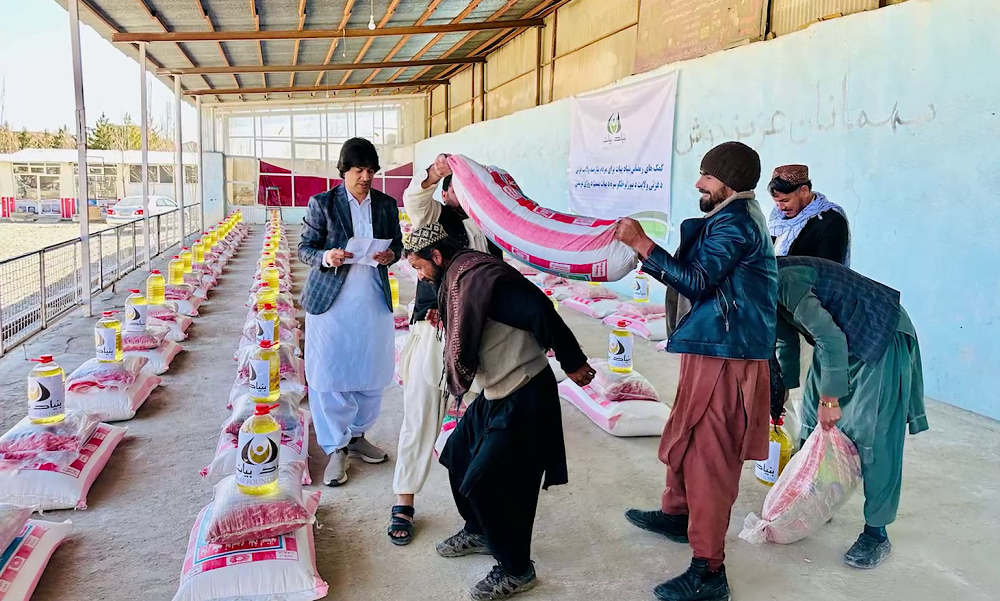
In continuation of Ramadan aid efforts in Afghanistan, Bayat Foundation this week distributed food aid packages to dozens of needy families in central Ghazni province.
Officials from Bayat Foundation stated that these donations were distributed to deserving families after a thorough assessment was carried out.
The foundation distributed food aid that included essential items such as flour, rice, and cooking oil.
Families who received the aid welcomed the initiative and thanked the foundation. They also appealed to other organizations to help the needy during the holy month of Ramadan.
Bayat Foundation has provided significant aid to the needy residents of this province in the past.
The foundation has also distributed substantial amounts of food aid to several other provinces so far this Ramadan.
Bayat Foundation however has also been at the forefront of providing humanitarian assistance during disasters, such as earthquakes and floods. In addition, it has rolled out numerous projects over the years, such as the project to provide clean drinking water in various provinces. It has also helped build mosques, schools and healthcare centers.
Latest News
UN warns over 4 million Afghan girls will be deprived of education by 2030 if ban continues

United Nations spokesperson Stéphane Dujarric warned Monday that over four million Afghan girls could be deprived of an education by 2030 if the Islamic Emirate of Afghanistan (IEA) continues with its ban.
Addressing a press conference in New York Dujarric said UNICEF has reported that another 400,000 girls are being deprived of a secondary school education in this new academic year, which started this week.
“UNICEF tells us that in Afghanistan the new school year started today but an additional 400,000 girls are being deprived of their right to education bringing the total number of girls without access to this essential right to 2.2 million.
“That’s 2.2 million girls being deprived of education today. [This] marks three years since the start of the ban on girls secondary education. UNICEF says that if this ban persists until 2030, which we hope it won’t, over four million girls will have been deprived of their right to education beyond primary schooling.”
He went on to say “Afghanistan cannot leave half of its population behind despite the ban.”
Dujarric pointed out that UNICEF has provided access to education to some 445,000 children through community-based learning, 64% of whom are girls. UNICEF is also empowering female teachers to ensure that girls have positive role models,” he said.
Latest News
Norwegian Refugee Council cuts back on essential humanitarian services in Afghanistan
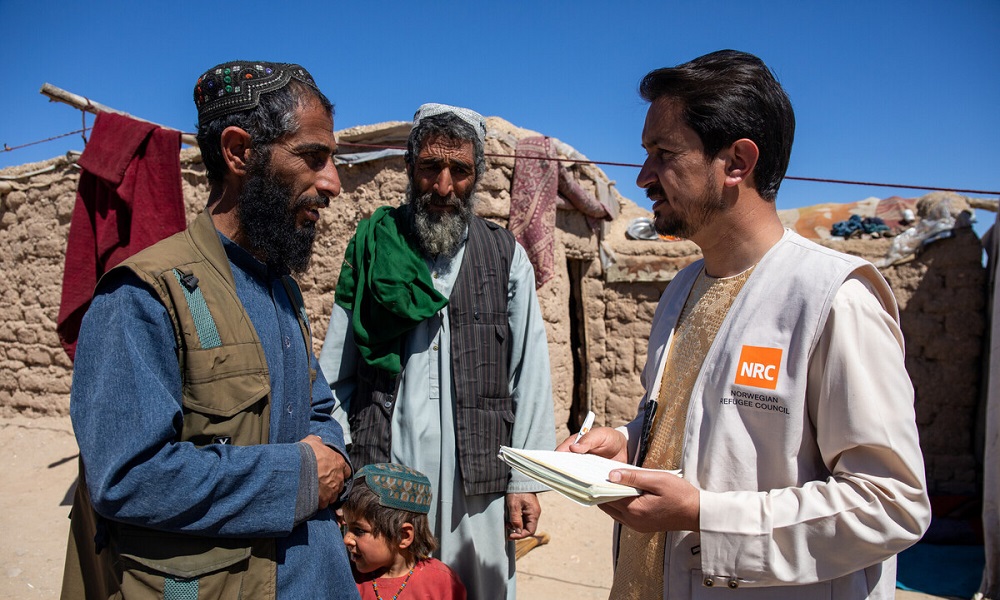
The Norwegian Refugee Council (NRC) said Tuesday it is forced to cut back on services in Afghanistan due to the cuts in aid by Donald Trump, the president of the United States.
In a statement issued on Tuesday, Suze van Meegen, N RC’s interim country director in Afghanistan said: “At a time when men, women and children in Afghanistan urgently need international funding and support, NRC and our partners are facing drastic funding cuts from key donors.
“This situation leaves us with no choice but to make untenable reductions in our services, further jeopardising vital lifelines for the most vulnerable and impoverished communities.”
She said like many humanitarian organisations, NRC Afghanistan has been forced to close offices in several provinces and lay off many dedicated and professional humanitarian staff, with a particularly adverse impact on female aid workers.
“These funding cuts have far-reaching consequences. They extend from communities that have lost access to basic assistance to thousands of experienced Afghan staff that have lost their livelihoods,” van Meegen said.
The NRC warned that wide-ranging cuts in aid will lead to a diminishing footprint of humanitarian agencies in Afghanistan and leave the lives of millions on an increasingly dangerous trajectory, affecting women and children most adversely
In January, Trump suspended ongoing aid projects which forced the majority of US-funded humanitarian work to be put on hold or end. Other donor governments – including Belgium, France, Germany, the Netherlands, Belgium Sweden, Switzerland and the United Kingdom – have since also announced that their global aid budgets will be reduced in the coming years, foreshadowing a significant drop in the assistance available to the world’s most vulnerable.
“This is the most challenging situation that NRC Afghanistan has faced in its 22 years in the country. However, I want to emphasise that NRC Afghanistan is not shutting down its operations. We remain committed to staying in Afghanistan to support displaced women, men and children and to ensure that communities affected by decades of war are not left behind,” said van Meegen.
The NRC said that since January, it has been forced to close two of its community resource centres, with two more at risk without suitable funding in the coming month.
The centres have been crucial in supporting returning and internally displaced Afghans, providing assistance with housing, food, legal assistance and referrals to healthcare providers, particularly for Afghan women who are heading their families and depend on female-to-female aid.
The loss of female aid workers across the country is further restricting women and children’s access to essential services, reinforcing the conditions that prevent them from enjoying their basic rights, the NRC said.
Van Meegen said: “To prevent catastrophic damage in Afghanistan, the international community needs to step up and commit to supporting a population that has faced decades of war and neglect.”
The NRC has been present in Afghanistan since 2003, delivering key services with the support of its donors, directly delivering assistance to people in need.
This includes providing shelter and protection services to displaced Afghans and those returning from neighbouring countries.
According to the UN’s latest findings, almost 22.3 million Afghans need humanitarian assistance and 1 in 3 Afghans (more than 14 million people) do not know where their next meal will come from.
In 2024, the United States contributed just under $742 million to Afghanistan’s $1.72 billion Humanitarian Response Plan – this equalled 43.4%.
The 2025 humanitarian response plan for Afghanistan is currently just 13.3%, according to UNOCHA.
-
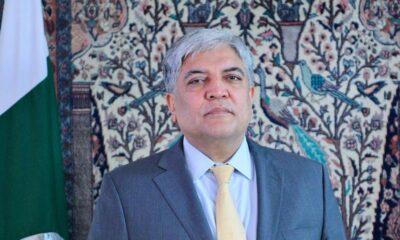
 Latest News5 days ago
Latest News5 days agoPakistan once again urges IEA to act against militants
-

 Sport4 days ago
Sport4 days agoAFC Beach Soccer: UAE thrash Afghanistan 7-1 in opener
-
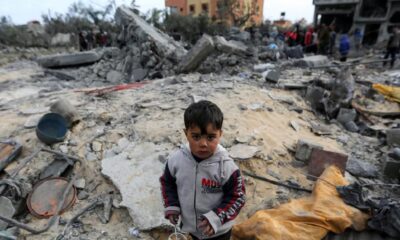
 Regional5 days ago
Regional5 days agoAt least 91 killed in Gaza as Israel abandons ceasefire, orders evacuations
-

 Latest News4 days ago
Latest News4 days agoAmerican freed by IEA reunited with wife, former cellmate, in US
-
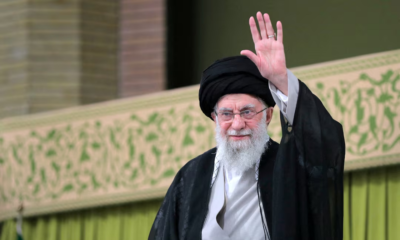
 Regional4 days ago
Regional4 days agoIran’s leader says Yemen’s Houthis act independently, warns against US action
-
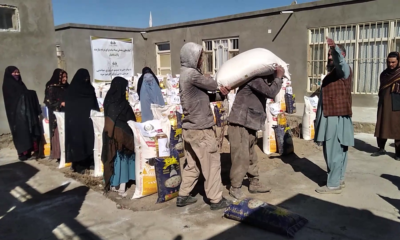
 Latest News4 days ago
Latest News4 days agoBayat Foundation delivers Ramadan aid to needy families in Bamyan
-

 International Sports3 days ago
International Sports3 days agoBoxing legend George Foreman dies at 76
-
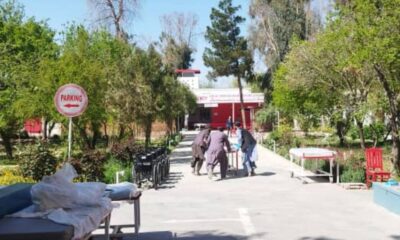
 Latest News4 days ago
Latest News4 days agoEighteen injured after dispute between two brothers in Helmand


